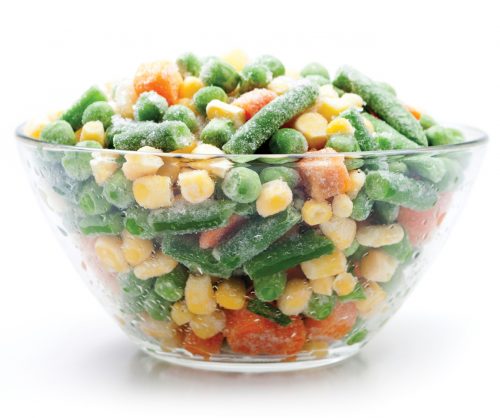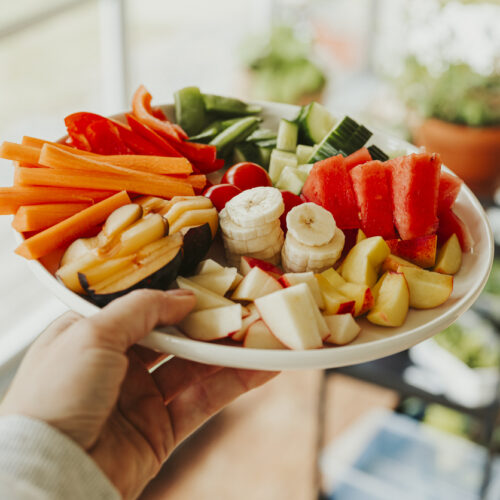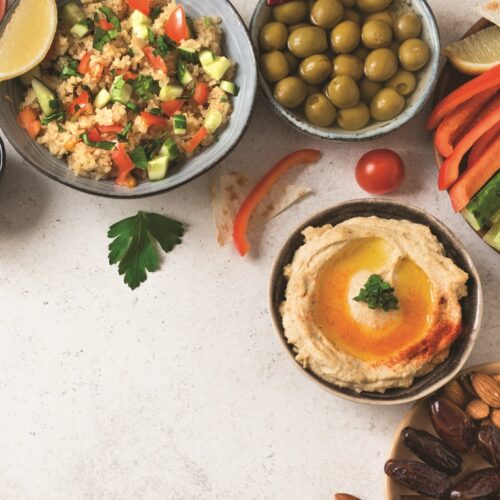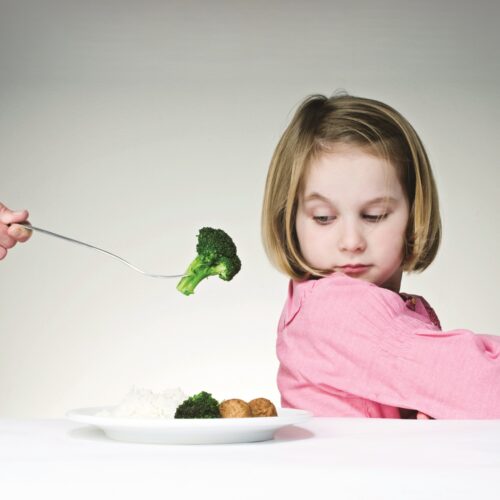
There are plenty of fabulous frozen vegetables to choose from. Nutritionist Rose Carr looks at what’s available.
Healthy vegies
There are so many reasons to eat more vegetables. Higher intakes of vegetables have been shown to significantly reduce the risk of a number of cancers. One of the 10 recommendations from the World Cancer Research Fund report is to eat mostly plant foods, aiming for at least five serves (or a minimum of 400g) of non-starchy vegetables and fruit each day. Higher intakes of vegetables are also thought to help protect us from coronary heart disease, stroke and cataracts. Many other health conditions appear to be improved with higher intakes of vegetables. The list keeps growing the more we know.
Colour your plate
The different colours in our vegetables and fruit indicate the presence of different phytochemicals. It is thought the benefits of diets higher in vegetables and fruit come not only from the amount of vitamins, minerals and fibre they provide but also from the synergistic effect of these hundreds of different phyto-chemicals — a great reason to not only increase our vegetable intake but to aim to include a colourful variety.
Are frozen vegies as good as fresh?
We admit it’s hard to beat vegetables straight from the garden for taste and texture, but it is reassuring to know that frozen veges are not only convenient and practical, they are also nutritious.
Freezing vegetables in itself doesn’t alter their nutrition, and frozen veges are processed pretty quickly after picking.
Before freezing vegetables, they must first be blanched, which can affect nutrients, although most are blanched using steam rather than water (which has less effect). Fresh vegetables can also lose nutrients during distribution and storage when the temperature may not be constant and there can be some physical damage. So on balance, there is little difference between fresh and frozen when it comes to nutrition.
Potassium
Another reason vegetables are so important is they are the best source of potassium in our diets. Most us get much more sodium (from salt) than is recommended and as a result many of us have high blood pressure, a risk factor for cardiovascular disease. Increasing potassium in our diets can help lessen the effect of sodium on blood pressure.
Tips
- Aim to buy frozen vegetables towards the end of your shop. Get frozen vegetables into your freezer as quickly as possible to avoid partial defrosting. Use a chiller bag when it’s warm.
- Remember, frozen vegetables have been partially cooked before being frozen. So when adding frozen vegetables to a hot dish, add veges straight from frozen. Don’t defrost them first as they may end up soggy in the dish.
How to choose
- We recommend choosing vegetables with nothing added.
- Aim to include a range of different-coloured vegetables every day. It’s OK to have the basics you know you are always going to use but also aim for variety.
- A reasonable approximation for one vege serve is 80-100g, ie. about half a cup.
Ideas for using
Use frozen vegetables to add more vegies to your day:
- Make a dip (eg. broad bean and mint)
- Add frozen veges to stir-fries
- Blend cooked peas to make mushy peas or add frozen peas to mash or risotto
- Snack on edamame beans
- Toss julienned carrots through a salad
- Add frozen veges to shop-bought or homemade soups
- Add veges such as spinach, whole kernel corn or peas to muffins and other baking (eg. Cheesy pizza scrolls)
www.healthyfood.com










